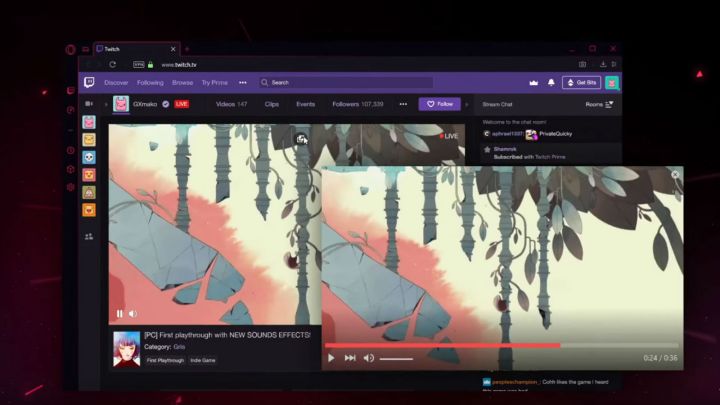The web browser Opera is the latest to share plans for AI integration with ChatGPT. Its parent company, the Chinese brand Kunlun Tech, first announced its plans on Wednesday with few details, according to CNBC.
However, the Norway-based Opera has since revealed some of the details of how its ChatGPT-based browser will work.

The upcoming updates to its browsers will include adding “AI-generated content services to the browser sidebar,” Opera said in a press release. Opera’s implementation of ChatGPT into its browser quickly follows news of Microsoft adopting OpenAI’s system into its own browser, as well as Google announcing its proprietary Bard AI tool. Browser- and search engine-associated companies have taken a special interest in the AI popularity surge, especially with ChatGPT having started as a browser-based tool.
Microsoft is currently first out of the gate, offering a waitlist for its ChatGPT-powered version of Bing. Google’s Bard AI isn’t out yet, but Google says its testing the service now as a crop of ChatGPT alternatives start to pop up.
Other features include those that will work with the browsers to simplify their functions, such as a “Shorten” button in the address bar. This will allow AI to fashion a summary of a webpage or article. Overall, Opera is aiming to develop tools that will help users filter through the explosion of content that is expected due to the onset of generators such as ChatGPT.
Other companies that have their own AI tools planned in the near future include Baidu and Alibaba, CNBC said.
It remains to be seen how the introduction of new options and the implementation of ChatGPT onto other platforms will affect its use on its primary hub. The text generator continues to have its own challenges, such as consistently overloaded servers, its upcoming premium pricing options, and now the threat of the chatbot being used to create malware.
However, OpenAI’s collaborations with various companies could potentially increase the number of users of its technology without people having to access the platform. ChatGPT hit a 100 million user milestone in early February, with approximately 13 million unique visitors daily in January, according to Reuters.
Opera saw approximately 321 million users in the third quarter of 2022. It is the sixth most popular browser globally with a 2.4% market share. In comparison, Google Chrome has a global market share of 65.4%, and Microsoft Edge had a 4.5% market share, according to Statcounter.
Editors' Recommendations
- 8 AI chatbots you should use instead of ChatGPT
- The best ChatGPT plug-ins you can use
- GPT-4 vs. GPT-3.5: how much difference is there?
- OpenAI needs just 15 seconds of audio for its AI to clone a voice
- How much does an AI supercomputer cost? Try $100 billion



